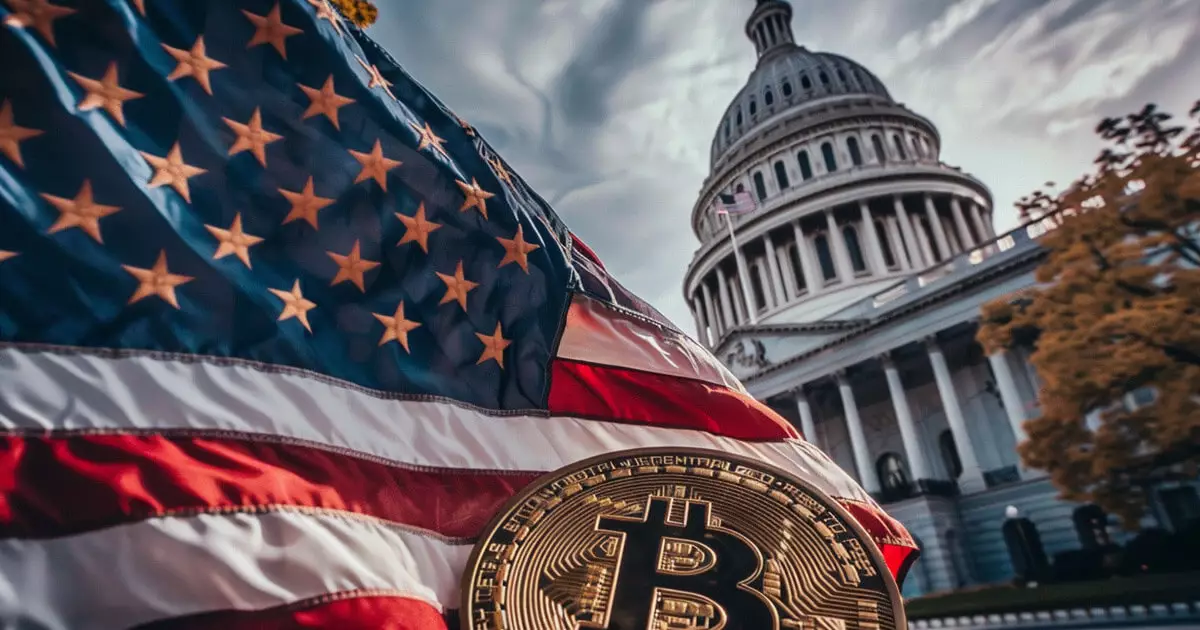The world of digital currency continues to expand, with stablecoins—cryptocurrencies pegged to stable assets—becoming critical players in this evolving financial sector. Recognizing their significance, Congresswoman Maxine Waters, the prominent Democrat on the House Financial Services Committee, has issued a clarion call for a bipartisan agreement on stablecoin regulation by the end of 2024. Waters’ advocacy marks a pivotal moment as lawmakers strive to navigate this complex arena in a manner that prioritizes consumer protections and sound regulations.
During a committee hearing on September 24, Waters articulated her belief that bipartisan agreement is achievable. She acknowledged the exhaustive efforts that have been invested since 2022 in crafting a legislative framework. “Mr. Chairman, before the end of this year, I want us to strike a grand bargain on stablecoins,” she asserted, underscoring the urgency of the matter. Waters has been working closely with Republican Rep. Patrick McHenry, the committee chair, on a bill designed to regulate stablecoins—a legislative initiative that has encountered significant hurdles.
Despite pushing forward with regulatory proposals, past attempts to draft a comprehensive bill in 2023 have stalled due to disagreements over crucial provisions. One contentious point is the proposal that would allow state regulators to approve stablecoins without the Federal Reserve’s involvement. Waters has indicated that this poses fundamental issues, calling it “deeply problematic.” Her insistence on a strong federal oversight echoes international regulatory practices, highlighting the need for secure backing—such as short-term Treasury bills—to preserve the integrity of stablecoins.
Waters’ focus on the Federal Reserve’s central role highlights a growing recognition of the need for cohesive oversight in a rapidly evolving market. As stablecoins continue to proliferate, the concern over their backing becomes increasingly significant. The call for secure reserves mirrors broader economic principles aimed at ensuring the stability of currencies, both traditional and digital. McHenry shares this sentiment and has expressed hope that productive discussions on stablecoin legislation can pave the way for greater clarity surrounding digital assets as a whole.
As the legislative session comes to a close, both Waters and McHenry face intense pressure to finalize substantial bills. McHenry’s separate initiative, dubbed FIT21, seeks to enhance the regulatory framework for the broader cryptocurrency market, potentially aligning with Waters’ efforts to ensure that stablecoin regulations function harmoniously within the evolving digital landscape.
The hearing also provided a platform for testimony from all five U.S. Securities and Exchange Commission (SEC) commissioners, including Chair Gary Gensler and Commissioner Hester Peirce. Lawmakers scrutinized the SEC’s approach to digital asset regulation, particularly its tendency toward “regulation by enforcement.” Critics from both sides of the aisle voiced their concerns regarding the agency’s ability to offer clear guidelines essential for fostering a progressive market.
Commissioner Peirce has been particularly outspoken about the SEC’s ambiguous regulatory posture. She indicated that while the agency possesses numerous tools to clarify token classification and address market confusions, it has not been proactive in leveraging these resources. Her assertion—that the SEC has “taken a legally imprecise view to mask the lack of regulatory clarity”—resonates with industry commentators who have long deemed such vagueness detrimental to market growth.
In this legislative skirmish, questions surrounding token classification loom large. Peirce reiterated the importance of clarifying that certain tokens should not be categorized as securities to facilitate market transactions. The SEC’s hesitance to provide a definitive framework adds another layer of complexity to the discussions surrounding both stablecoins and digital assets as a whole.
As Congress grapples with the intricacies of stablecoin legislation and the overarching question of digital asset regulation, the urgency for a clear and comprehensive framework is palpable. With Waters and McHenry striving for bipartisanship, the potential for constructive dialogue exists. The regulation of stablecoins is not merely a financial necessity—it is a critical step toward ensuring consumer protection, market integrity, and the continued legitimacy of digital currencies in the broader financial landscape. As the deadline approaches, stakeholders in the industry and Congress alike must remain vigilant and proactive.



















Leave a Reply